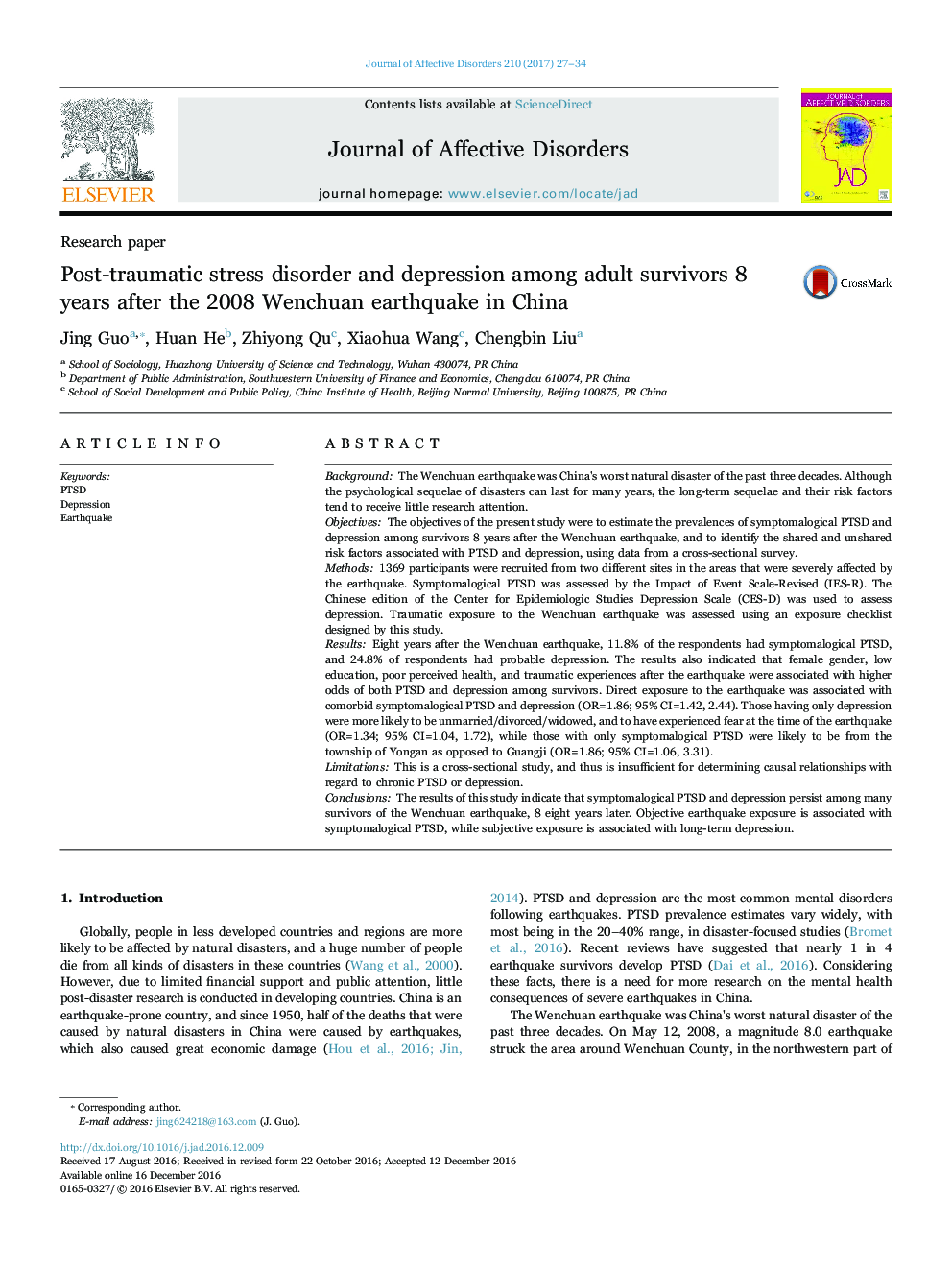| کد مقاله | کد نشریه | سال انتشار | مقاله انگلیسی | نسخه تمام متن |
|---|---|---|---|---|
| 5722369 | 1608115 | 2017 | 8 صفحه PDF | دانلود رایگان |
- 11.8%, and 24.8% of respondents had PTSD and depression 8 years after the quake.
- Direct exposure to the earthquake was associated with comorbid PTSD and depression.
- Exposure checklist can be used in the rapid evaluation of exposure after the quake.
BackgroundThe Wenchuan earthquake was China's worst natural disaster of the past three decades. Although the psychological sequelae of disasters can last for many years, the long-term sequelae and their risk factors tend to receive little research attention.ObjectivesThe objectives of the present study were to estimate the prevalences of symptomalogical PTSD and depression among survivors 8 years after the Wenchuan earthquake, and to identify the shared and unshared risk factors associated with PTSD and depression, using data from a cross-sectional survey.Methods1369 participants were recruited from two different sites in the areas that were severely affected by the earthquake. Symptomalogical PTSD was assessed by the Impact of Event Scale-Revised (IES-R). The Chinese edition of the Center for Epidemiologic Studies Depression Scale (CES-D) was used to assess depression. Traumatic exposure to the Wenchuan earthquake was assessed using an exposure checklist designed by this study.ResultsEight years after the Wenchuan earthquake, 11.8% of the respondents had symptomalogical PTSD, and 24.8% of respondents had probable depression. The results also indicated that female gender, low education, poor perceived health, and traumatic experiences after the earthquake were associated with higher odds of both PTSD and depression among survivors. Direct exposure to the earthquake was associated with comorbid symptomalogical PTSD and depression (OR=1.86; 95% CI=1.42, 2.44). Those having only depression were more likely to be unmarried/divorced/widowed, and to have experienced fear at the time of the earthquake (OR=1.34; 95% CI=1.04, 1.72), while those with only symptomalogical PTSD were likely to be from the township of Yongan as opposed to Guangji (OR=1.86; 95% CI=1.06, 3.31).LimitationsThis is a cross-sectional study, and thus is insufficient for determining causal relationships with regard to chronic PTSD or depression.ConclusionsThe results of this study indicate that symptomalogical PTSD and depression persist among many survivors of the Wenchuan earthquake, 8 eight years later. Objective earthquake exposure is associated with symptomalogical PTSD, while subjective exposure is associated with long-term depression.
Journal: Journal of Affective Disorders - Volume 210, 1 March 2017, Pages 27-34
